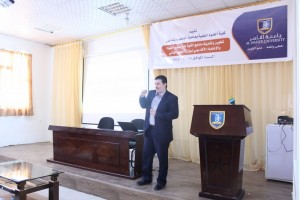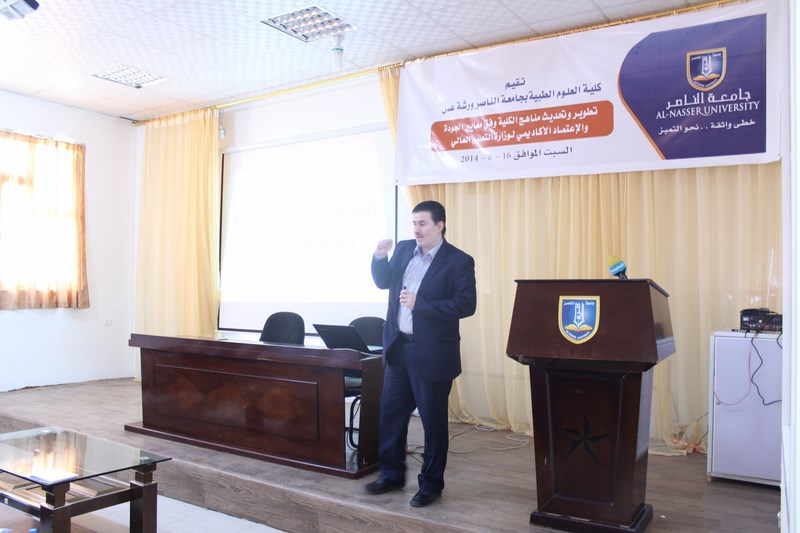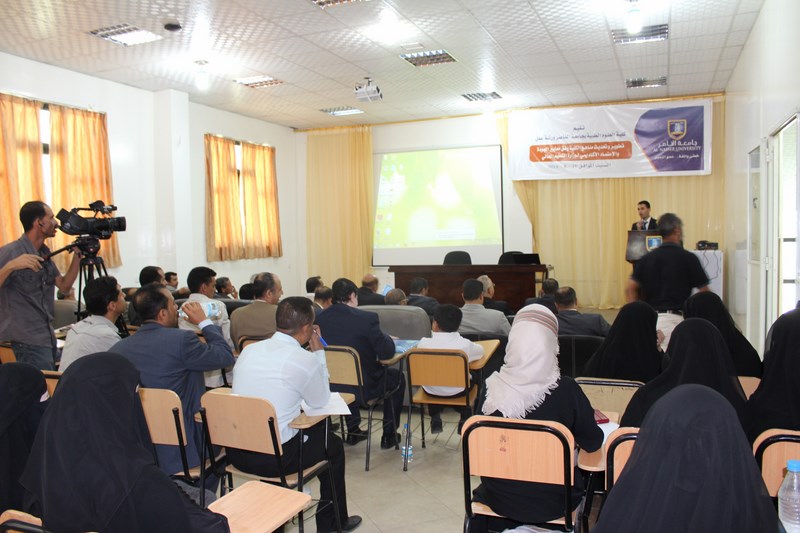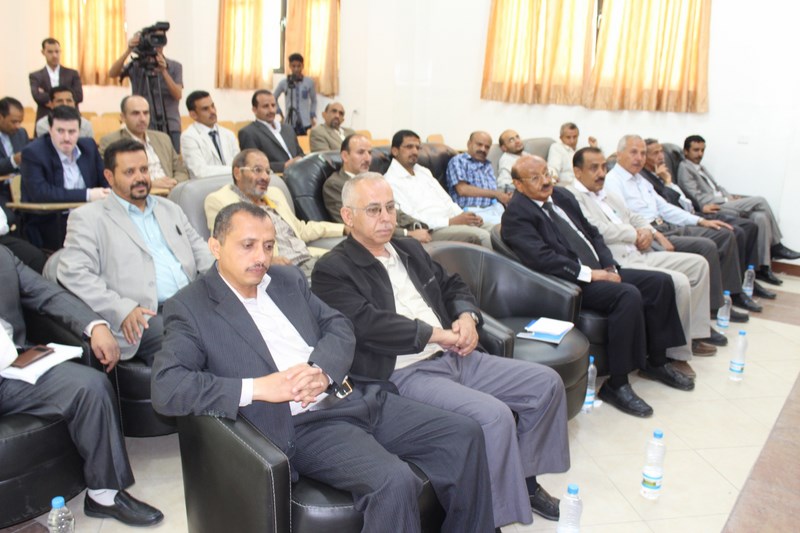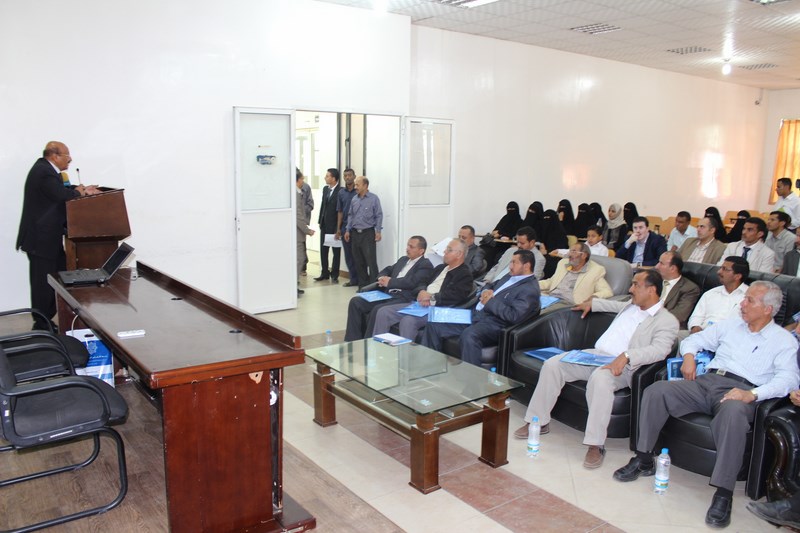Curriculum Upgrading and Academic Quality Workshop at University
A workshop has been organized at Faculty of Medical Sciences for upgrading the curricula in accordance with the academic quality standards accredited by Ministry of Higher Education. Assigned for developing the curriculum of Faculty of Medical Sciences, the workshop discussed the methods applicable in upgrading the university curricula to be in line with the latest educational systems so that the outcomes can efficiently meet the requirements of the local and regional labor market.
In his presentation, Dr. Salih Salem Bahaj talked about the possibility of developing curriculum in Yemen with the help of the ascribed criteria and prerequisites. Dr. Bahaj referred to four factors that he considered essential to the development of higher education in Yemen. He mentioned first the current instructional administration and how it must be carefully selected based on the efficiency standards. Next comes re-drafting the curriculum so as to keep pace with scientific progress and the needs of the labor market. Qualifying and training the teaching staff represents a significant foundation underpinning the modern participatory educational
process. Finally, the financial resources arise as the most important factor that ensures the potentiality of development.
Dr. Anwar Masoud presented a paper on the new methods that should be used in university teaching, pointing to the large number of mistakes that most academicians make when they do not heed how to assess their performance. Some still depend on the traditional methods of teaching. They neither make use of the others’ experiences nor try to improve and update themselves. He invited the participants in the workshop to think of innovative ways that will make their classes eligible and admirable. He further emphasized that teachers must feel responsible for the educational process regardless of the governmental shortcomings. Participants reacted positively to Dr. Masoud’s ideas. They expressed their willingness to enthusiastically follow the quality standards determined by Ministry of Higher Education. Handouts containing the papers’ outlines were distributed among participants in order to be drafted later on into recommendations for upgrading the Faculty’s educational system.
Dr. Abdulkarim Alzumor, Dean of the Faculty, confirmed that this workshop would be followed by many steps towards improving the curriculum, employing qualified and eminent educational staff, and providing the laboratories with the latest scientific and technical equipments. According to the Dean, the Faculty of Medical Sciences aspires to be one of the best local and regional colleges of applied sciences. It should also be competitive in terms of supplying the labor market with efficient professionals and taking part in community service as well as national welfare.
For his part, Dr. Ali Qassim, Deputy Minister of Higher Education, pointed out that the Ministry prepared 90 training programs for teaching staff in public and private universities 20 programs of which would be in Pharmacology, Laboratory, and Dentistry. He added that the Ministry had already signed a memorandum of understanding with the World Health Organization to back the cooperation with the Center of Academic Accreditation in Yemen so as to update and classify the curriculum of medical colleges in accordance with the international educational standards.
He expressed his satisfaction with the University’s keenness on making use of the quality and academic accreditation system approved by the Ministry of Higher Education. He asked all private and public universities to follow Al-Nasser’s example stressing the need to unite all efforts towards upgrading the educational system in Yemen.
The workshop was attended by the following participants: Dr. Ali Qassem, Deputy Minister of Higher Education for Educational Affairs in Yemen, Dr. Adnan Alsenawi, Director of Licensing Dept. at the Council of Academic Accreditation, Dr. Ahmed Saif Muharram, Chairman of the Board of Trustees at Al-Nasser University, Dr. Said Alghalibi, the Rector, Mr. Ali Althaifani, the Secretary General, a number of Yemeni consultants and academicians, and the University’s teaching and administrative staff.
Search
News

Al-Nasser University Football Team Qualifies for Aqsa Flood Championship Finals
In the presence of Prof Abdullah Tahish, the Ch...
Al-Nasser University Holds 2022/2023 Convocation in Prime Minister’s Presence
The annual academic convocation was held by Al-...
NU Holds Workshop for Designating and Approving FMS Master Programs by CAAQA Standards
In the presence of Prof Abdullah Tahish, the Ch...
Chancellor Inspects Progress of 1445 AH (2023/2024) 1st Semester at FMS
An inspecting visit was made by Prof Abdullah T...
Chancellor Inspects Progress of 1445 AH (2023/2024) 1st Semester at FMS & FAFS
An inspecting visit was made by Prof Abdullah T...

